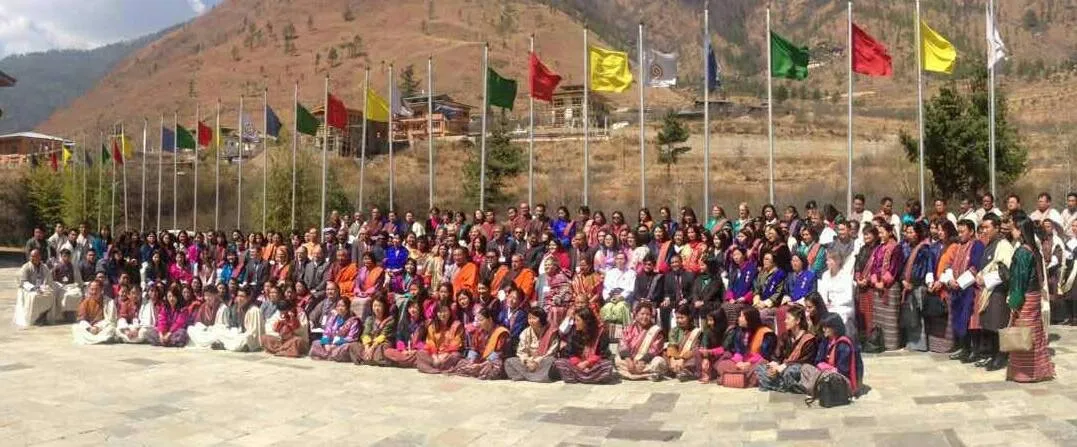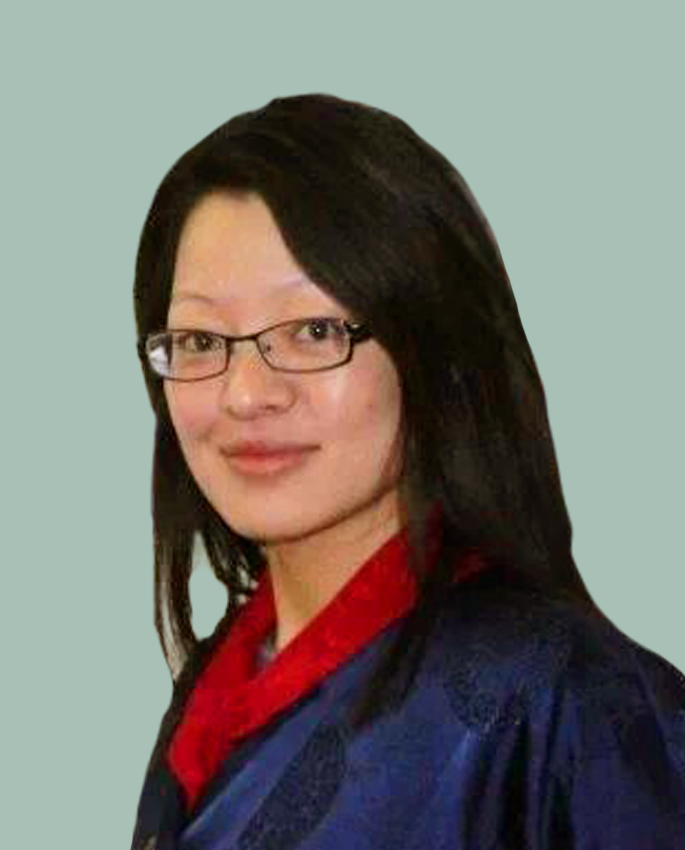Thimphu Declaration: Concrete Goals agreed in Bhutan's 2nd National Women's Conference

To observe the International Women’s Day, the 2nd National Conference on Women in Governance, Leadership & Politics in Bhutan with a regional dimension was organised between 8 -10 March 2017 by the National Commission for Women and Children (NCWC) and the Bhutan Network for Empowering Women (BNEW) in collaboration with Women Children and Youth Committee of the National Assembly, Election Commission of Bhutan, Department of Local Governance and Bhutan Democracy Dialogue. The Danish Institute for Parties and Democracy (DIPD) was the leading internationl supporter alongside International IDEA and UNWOMEN. The Conference was inaugurated by Her Royal Majesty Queen Mother Sangay Choden Wangchuk and attended by more than 254 participants, including those from the region such as politicians and activists from Myanmar, Nepal and delegations from Denmark. The Honourable Prime Minster also graced and spoke at the occasion which was attended by other ministers, parliamentarians, political parties, local leaders, officials from government agencies, civil society organizations, media and international organisations.
The main objectives of the workshop was :
- To take stock of opportunities and challenges for women in Governance, leadership and politics in Bhutan;
- To understand better how the underlying norms and values of gender and patriarchy hinder advancement of women especially in ledership and politics;
- To revisit the need for context specific affirmative actions and fast-track measures to support the agenda to enhance women’s participation and representation in governance, leadership and politics; and
- To share and learn from regional experiences.
During the three-day conference, the current situations, challenges, obstacles, opportunities and options for increasing women’s participation in governance and politics that can be context specific to Bhutan were discussed with deep insights and reflections from other countries.
Currently, Bhutan's rank in the Global Gender Gap Index in the World Economic Forum Report 2016, fell from 93rd out of 136 countries in 2013 to 121st amongst 144 countries. In political empowerment in particular, Bhutan ranked 122nd in 2013 and slipped ten places to 132nd in 2016. In this aspect alone, too, Bhutan ranks 8th or the last among the South Asian Association for Regional Cooperation (SAARC) nations.
Thus, the glaring under-representation of Bhutanese women in politics calls for bolder reforms from the policy makers so that a higher percentage of women are nominated/elected to the parliament in 2018 elections. This echoes the "Be Bold for Change" slogan for this year's International Women's Day. What emerged as a recurrirng theme during the Conference throughout was the underlying socio-cultural norms - the unspoken law - patriarchy, privileging men and the social contracts that bind women to fixed social roles. The power dynamics between men and women seep not only into the politcal scenario, but also in everything that women do in perpetuating gender inequality. These serve to be the biggest obstacles to acheiving gender parity combined with other multi-dimensional issues in politcs and governance.
A Danish-Swedish professor of political science at Stockholm University, Professor Drude Dahlerup said at the Conference, “it is the responsibility of the political parties to be more inclusive in terms of gender since the political parties are the gatekeepers to the nominations of the candidates for the election. The NCWC also affirmed that as the legislation amendments takes time, it was also quite obvious that political parties who are gate keepers can play crucial role in voluntarily ensuring at least 33 per cent of their candidates are women, but the set target may not be met. Thus, they need to incorporate 33 per cent criteria in the Election Act".
The media was seen as a powerful ally in influencing and changing the mindset and breaking the stereotypes by bringing in gender responsive reporting. But at times, as pointed out by participants of the conference, the media is gender-insensitive and lacked substantive coverage that are of interests to women. Media personnel in attendance cited the reason for this was due to lack of awareness on how to report sensitively, an area where capacity building is required.
At the end of the Conference, the major outcome was the Thimphu Declaration with the following vision and goals:
Vision:
Women in the changing world of work: Planet 40:60 by 2030 in governance, leadership and politics.
Goals:
Goal 1: 2018-2019
Ensure 30% of women candidature in the upcoming elections from the political parties.
Goal 2: 2020-2021
Increase the number of elected women local leaders by 30% through fast-track measures.
Goal 3: 2017-2025
Increase the number of women executives/leaders in the civil service/public service by 25 per cent by 2025.
To achieve these goals, certain measures need to be taken, which are as follows:
- Review Electoral Laws, Bhutan Civil Service Regulations (BCSR), Local Governement (LG), National Assembly (NA) Act, National Council (NC) Act and relevant policies, Laws & regulations;
- Adopt a Gender Equality policy;
- Propose for a Local Government Election Campaign Fund;
- Political parties to revisit and commit to mainstream gender in their charters and manifestos;
- Carryout targeted Gender Responsive advocacy at all levels and especially by the media and CSOs;
- Create a system whereby women leaders in different offices mentor other aspiring women candidates;
- Enable gender responsive election environment to increase voter turnout.
- Create and provide crèche and other children facilities in public offices and also during election period.
To strengthen the resolve and commitment towards the Thimphu Declaration, a memorandum of understanding (MOU) was signed between NCWC and BNEW, with the National Assembly Speaker and Lyonpo Dorji Choden, Minister/Chairwoman of NCWC, pledging to extend full support of the Government of Bhutan to translate the Thimphu Declaration into action to back up international agencies in terms of financial assistance.




